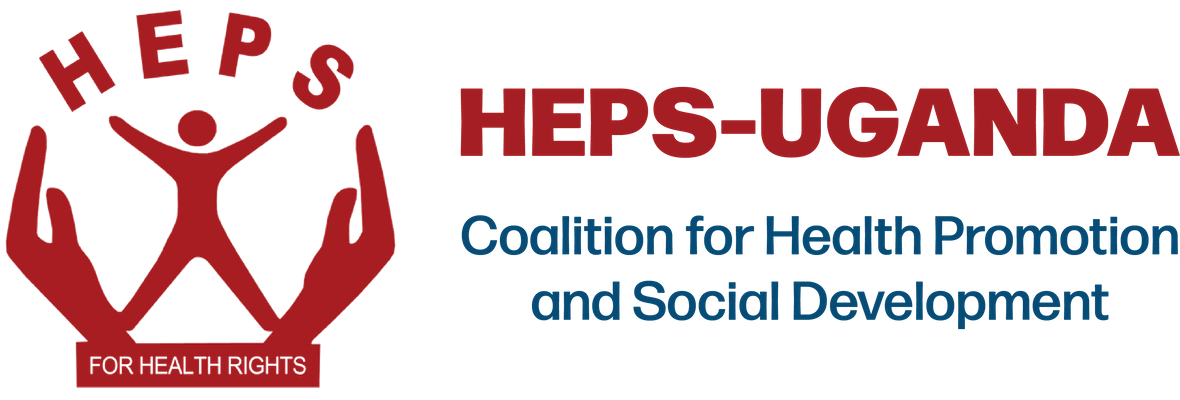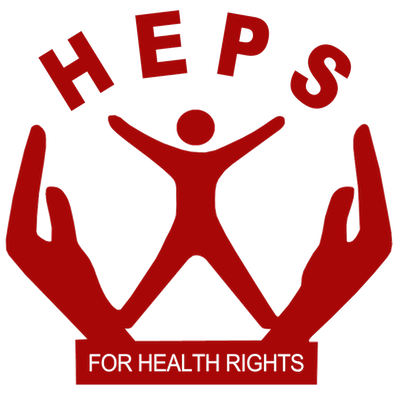From us,
Immunization campaign continues in Kiboga: HEPS-Uganda@25, working with the Ministry of Health-UNEPI and the Kiboga District Local Government, is continuing to support immunisation outreach efforts in Kiboga District. This week, we supported Nyamiringa Health Center III in carrying out an outreach in Kyamukweya village, Kapeke/Kayera sub-county. These activities focus on communities that are often missed because they live far from government health facilities, leading to more cases of children who have not received any vaccines or are under-immunised. During the outreach, other services like family planning were also provided to mothers.
Courtesy Photo by Heps-Uganda; Immunization campaign in Kiboga district
HEPS-Uganda@25 at National Dialogue on Health Financing: HEPS-Uganda@25 took part in a three-day National Dialogue on Health Financing held at Speke Resort Munyonyo. The event brought together key health stakeholders, including representatives of Civil Society Organizations (CSOs), government agencies, and donors. Several financing strategies were discussed, such as integrating health programs, using Results-Based Financing (RBF) to support community-led monitoring, and boosting research and development for the health supply chain. Other ideas included making it easier to fund local production of medical supplies, improving oversight by the National Drug Authority (NDA), and creating partnerships between government, religious and cultural institutions, SACCOs, banks, and the private sector for health insurance. Strengthening local CSOs to improve transparency, budgeting, and accountability was also emphasized, along with involving communities in planning and budgeting. The dialogue also called for digitising health services, promoting public-private partnerships at local levels, learning from agriculture credit models, and encouraging funders to pool resources under one plan, one strategy, one budget, and one reporting system.
Courtesy Photo by Heps-Uganda; National dialogue on Health Financing
HEPS-Uganda@25 participating in development of new HIV plan: HEPS-Uganda took part in a technical working group meeting at the Uganda AIDS Commission (UAC) focused on developing the National HIV and AIDS Strategic Plan for the period 2025/26-2029/30.
HEPS-Uganda@25 participates in HIV, Key Population criminalisation dialogue: HEPS-Uganda took part in the second strategic dialogue meeting on “Addressing HIV and Key Population (KP) Criminalisation and Discrimination in Uganda: Making the Case for Integrating HIV Services.” The meeting was organized in partnership with Harm Reduction International through the Lawyering on the Margins Program.
Courtesy photo by HEPS-Uganda; HIV, Key population criminalisation Dialogue meeting
From our partners,
CEHURD, TASO conducts legal aid clinics in Tororo: Center for Health, Human Rights and Development (CEHURD), in partnership with TASO Uganda under the Global Fund Project, conducted legal aid clinics within communities in Tororo District. These services were delivered across the sub-counties of Osukuru, Nahongera, Moro, Akadoit, Petta, and Apetai, reaching a total of 935 individuals. The most commonly reported concerns included the challenges faced by people living with HIV, particularly the frequent stockouts of essential medical supplies at certain health facilities. The clinics also revealed a considerable gap in legal awareness among some stakeholders, underscoring the urgent need for focused capacity-building efforts.
RHU hosts regional reproductive health forum: This week, Reproductive Health Uganda (RHU) hosted the RHRN Regional Linking and Learning Event 2025, bringing together young changemakers from Ethiopia, Kenya, and Uganda for the final Right Here Right Now (RHRN) Regional Forum. This gathering served as a platform to celebrate achievements and impact, elevate youth voices, and energize the movement under the theme, “Beyond the Hustle: Celebrating Our Impact, Strengthening the Movement.”
From your community,
DTB Uganda joins Kabaka Foundation to deliver lifesaving healthcare in Buganda: Diamond Trust Bank Uganda (DTB) has reaffirmed its commitment to improving public health in Uganda through strategic, inclusive partnerships — joining hands with the Kabaka Foundation and Aga Khan University Hospital to deliver critical healthcare services to underserved communities.
Kasese Authorities raise alarm over malaria Mortality in the District: Malaria continues to be the leading cause of illness and death among children under five years in Kasese District. Despite ongoing efforts to curb the disease, the district is still grappling with high infection rates, primarily due to low mosquito net usage and poor community practices.
Over 300,000 lives are at risk as Pallisa Hospital equipment lies idle: More than 300,000 residents of Pallisa district are facing a growing health crisis as the district’s only public hospital operates with broken diagnostic equipment and chronic underfunding.Initially built for 100 patients the facility now handles over 5000 outpatients visits each month. But essential services have stalled and patients are increasingly referred elsewhere.
Courtesy photo by Nile Post
From Uganda,
Tayebwa urges awareness in malaria fight: Deputy Speaker Thomas Tayebwa has urged the public and stakeholders to intensify awareness campaigns in the fight against malaria. During the Annual Parliamentary Malaria Walk held in Kampala on Sunday, Hon. Tayebwa emphasized that awareness is a crucial weapon in eliminating malaria beyond just financial support and distribution of mosquito nets.
Courtesy Photo by Daily Monitor
Mental health clubs: The game changer in schools: As mental health challenges rise among Ugandan students, a new wave of school-based clubs is breaking the silence, building resilience, and proving that healing begins when young voices are heard. These clubs are part of a broader campaign to normalise mental health conversations in Uganda’s education system — a space long dominated by academic pressure, stigma, and silence. Martha Nankabirwa, a mental health administrator involved in the campaign, said the idea is simple but powerful: create safe spaces in schools where students can freely express their emotional struggles without fear of judgment. The program targets youth between 13 and 19 years old and focuses on building awareness, providing psychosocial support, and reducing stigma through creative activities like poetry, debates, and drama.
From the region,
US cuts aid to Zambia over ‘systematic’ medicine theft: The US has announced that it is cutting $50m (£37m) in aid to Zambia’s health sector, due to the country’s failure to address the “systematic theft” of donated drugs and medical supplies. This “difficult” decision was taken after repeated warnings to the Zambian government to safeguard vital drugs meant for the country’s most vulnerable patients, said US ambassador to Zambia Michael Gonzales.
Kenya cuts diabetes treatment by 50% as cases soar: The government will reduce the cost of medication for diabetes patients by 50 per cent to address the rising number of cases in the country. The number of individuals living with diabetes has surged from 800,000 to an estimated 2 million. This reduction in treatment costs is expected to help manage the increasing prevalence of the disease.
Global health security,
Australia introduces a vaccine against influenza amid spike cases: According to updated data published by the federal Department of Health and Aged Care, there have been 72,360 laboratory-confirmed cases of influenza in Australia in 2025 so far, including 2,184 cases since May 2024. The spike in cases heading into Australian winter has prompted medical authorities to issue urgent reminders for Australians to get vaccinated.
Malawi confirms sixth Mpox case: The Public Health Institute of Malawi announced an update, saying the latest case is an 18-year-old student from Lilongwe. According to the Public Health Institute, the patient had his samples collected in a local health facility after presenting symptoms, and the samples tested positive.
Uganda declares end of Ebola outbreak: Uganda’s Ministry of Health declared the end of the Ebola disease outbreak on 26 April, less than three months after the virus was confirmed in the capital Kampala. During this outbreak, 14 cases, 12 confirmed and two not confirmed through laboratory tests (probable), were reported. Four deaths, two confirmed and two probable, occurred. Ten people recovered from the infection. A total of 534 people were identified as having been in contact with the confirmed and probable cases and were closely monitored. The last confirmed patient was discharged on 14 March 2025, triggering the 42-day countdown to officially declare the end of the outbreak, in line with World Health Organization (WHO) guidelines.
Courtesy Photo by The WHO
Africa’s disease outbreaks surge 40% as misinformation fuels health crisis: The growing threat of misinformation, disinformation, and chronic underfunding of public health in Africa is hampering the continent’s ability to detect, respond to, and contain recurring outbreaks of infectious diseases. This, the Africa Centres for Disease Control and Prevention (Africa CDC) warned, has left millions at risk as well as undermined trust in health systems. Speaking on Thursday during the opening of the second Journalists’ Workshop convened by the African Union, Dr Raji Tajudeen, acting deputy director-general of Africa CDC, noted that the rapid spread of false or misleading information during health emergencies continues to erode public trust, fuel stigma, and delay timely treatment.







